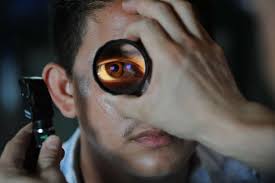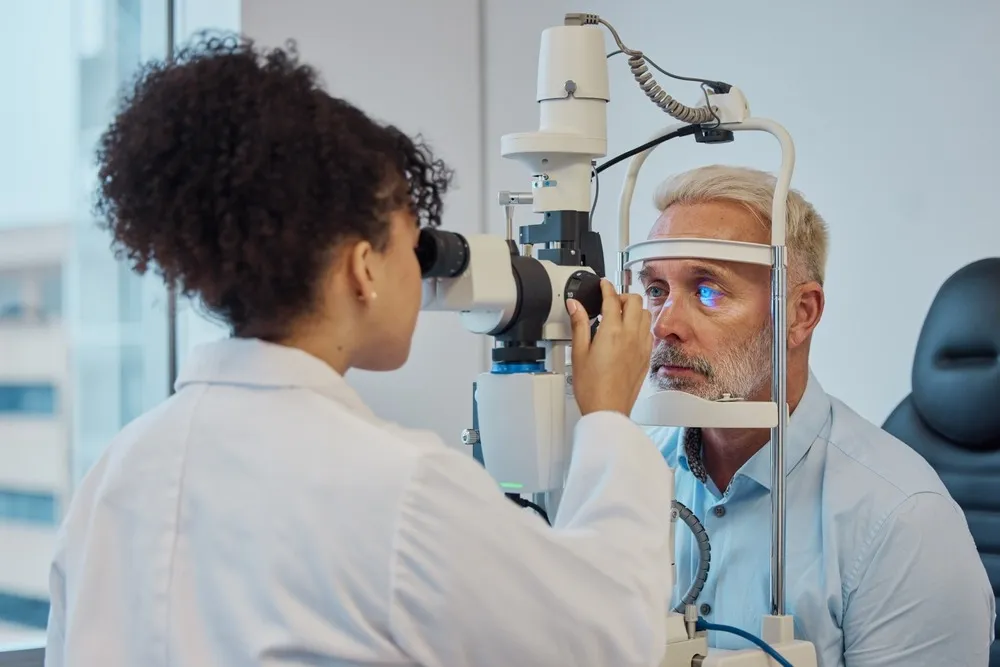While cataract surgery is highly effective, it isn’t always necessary for everyone at the same stage of cataract development. Understanding the signs, discussing lifestyle impact, and weighing the benefits with your eye doctor can help you make an informed decision. Knowing when surgery is appropriate helps you pursue treatment at the right time for your needs. Here’s more information on how to determine if eye lens replacement surgery is right for you:
Recognizing Surgery Signs
To determine if cataract surgery is necessary, you have to identify key symptoms and changes in your vision. Here are some common signs that may indicate it’s time to contemplate surgery:
- Vision becomes increasingly blurry, cloudy, or dim, making daily tasks difficult.
- Colors appear faded or less vibrant than before.
- You experience glare or halos around lights, especially at night.
- Difficulty seeing well in low-light conditions or requiring brighter light for reading.
- Frequent prescription changes for glasses or contact lenses, without noticeable improvement in vision.
- Trouble with activities like driving, especially at night or in bright sunlight.
If you notice one or more of these signs, consult your eye doctor for a comprehensive evaluation.
Evaluating Key Factors
Your eye doctor will evaluate multiple factors when determining if cataract surgery is appropriate. Visual acuity tests measure how clearly you can see at different distances. These tests help determine how much cataracts affect your daily vision.
Lifestyle impact plays a fundamental role in this decision. Your doctor will ask about activities that have become difficult due to your vision. If you struggle with reading, driving, working, or hobbies you enjoy, surgery may be recommended sooner.
Overall eye health affects surgical timing as well. Your doctor will check for other eye conditions like glaucoma or macular degeneration. These conditions may influence when surgery should be performed and what type of artificial lens would work best.
Exploring Surgical Alternatives
Not all vision problems from cataracts require immediate surgery. Your eye doctor may suggest trying other options first, especially if your symptoms are mild. Updated eyeglass or contact lens prescriptions can sometimes help improve vision temporarily.
Better lighting can make daily tasks easier when cataracts are in the early stages. Using brighter bulbs for reading, adding task lighting, and wearing sunglasses to reduce glare may help. Anti-glare coatings on glasses can also reduce problems with bright lights.
Magnifying devices can help with reading and close-up work. Large-print books, magnifying glasses, and computer screen enlargement tools may extend the time before surgery becomes necessary. These are temporary solutions as cataracts will continue to progress.
Deciding on Cataract Surgery
The decision to have cataract surgery should be based on how much your vision problems affect your life. Surgery is recommended when cataracts interfere with activities that matter to you. This may include driving, reading, working, or participating in hobbies.
Cataract surgery involves removing the cloudy natural lens and replacing it with a clear artificial lens. Modern techniques make this surgery safer and effective than ever before. Recovery time is relatively short for most patients. Vision often improves within a few days, but complete healing takes about eight weeks.
Get Evaluated for Cataract Surgery
Understanding whether cataract surgery is right for you requires a thorough evaluation by an eye care professional. The signs and factors discussed here can help you recognize when to seek treatment. For vision problems that affect your daily life, contact a trusted eye specialist near you to schedule an eye evaluation and discuss your options.
- HMS Photovoltaik: A Complete, In-Depth Guide to Modern Solar Power Solutions
- Decreto Supremo 160: A Complete and Updated Guide
- Dentiloquent: A Complete Professional Guide
- Närkes Elektriska: Your Trusted Partner in Electrical Services in Örebro, Sweden
- Litorotica Tags: Guide for Better Search, Safety, and Clarity





